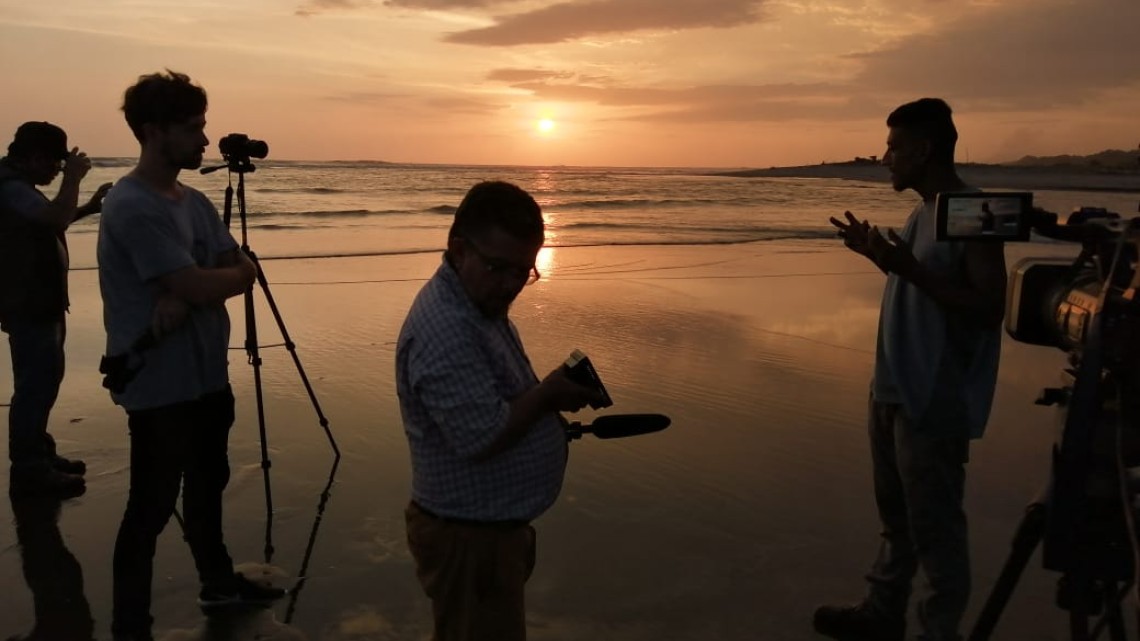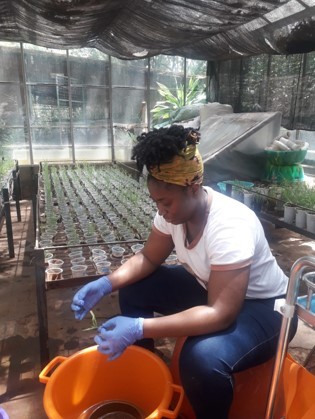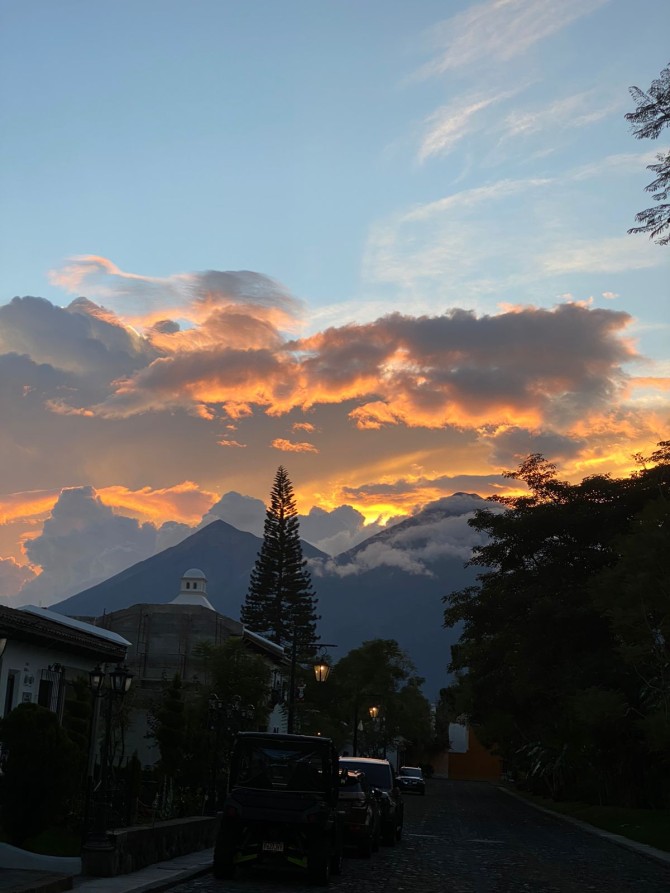
John Kennedy filming a documentary interview at the estuarine border between Mexico and Guatemala.
News directly from Cornell's colleges and centers
Fulbright-Hays awardees prioritize community-engaged discoveries
By Megan DeMint
Sudan Kariuki investigated deforestation on the south coast of Kenya – and discovered the most valuable part of the experience was learning from local scientists and Indigenous elders.
“None of my work would have been possible without their extensive regional knowledge and generous commitment to collaboration in service of Kaya forests,” said Kariuki, a PhD candidate in ecology and evolutionary biology in the College of Agriculture and Life Sciences.
Her research in Kenya was supported by a Fulbright-Hays Doctoral Dissertation Research Abroad award. The competitive fellowships send PhD students abroad for up to 12 months to build on their language proficiency, engage with other cultures and complete significant dissertation research on global cultures and societies.
Kariuki spent her year investigating the dry tropical forests of Kayas – a region sacred to the area’s Mijikenda peoples. By measuring factors like abundance and biodiversity of soil fungi, leaf nitrogen content and topsoil nutrient availability, she sought to understand the impact of deforestation caused by tourism, urbanization, mining and agricultural development in the region.
Her collaborators included Mijikenda elders and experts from the National Museums of Kenya and the Kenyan Forestry Research Institute.
“Along the way, they often pointed out the cultural values of native plants – many are medicinal – and noted areas of the forest where prayers and burials are conducted,” she said. “They asked great questions about my process and preliminary findings and made helpful suggestions about the best places to sample soil and leaves.”
Nine Cornell graduate students have received Fulbright-Hays awards since 2020. The Mario Einaudi Center for International Studies – the home of Cornell’s Fulbright program – advises and supports students throughout the application process.
Awardee John Kennedy, a 2023 PhD graduate in romance studies in the College of Arts and Sciences, spent most of his final year of graduate school pursuing research in migration, Indigenous epistemologies and Maya K’iche linguistics in the mountains of Guatemala.
“As a Guatemalan who is not Maya, I felt enormously privileged to be afforded this wonderful opportunity to conduct multi-modal research,” he said. “When I finished, I walked away from this research and study abroad experience thinking in Spanish again.”
Kennedy’s work included archival research and interviews with community members that rekindled his sense of connection – to language learning, ethical engagement and community.
“I began to learn Maya K’iche’ and rekindle my love for learning new languages,” he said. “I also realized that I could respectfully learn Indigenous languages without exotifying the experience.”
“I feel much more connected to my Latino identity, and I feel incredibly grateful for this opportunity, which the Einaudi Center made accessible and manageable, in spite of the pandemic’s effects on Guatemala,” said Kennedy.
A new cohort of Cornell Fulbright-Hays awardees has just been announced. Cornell celebrates a 100% acceptance rate, with five new awardees:
- Angelica Aguirre, History, A&S: Mexico
- Itamar Haritan, Anthropology, A&S: Israel
- Sasha Prevost, Near Eastern Studies, A&S: Israel, Turkey
- Timothy Ravis, Global Development, CALS: Indonesia
- Yayra Tamakloe, Anthropology, A&S: Ghana
“I can’t remember another year when everyone who applied received a grant,” said David Holmberg, Cornell’s Fulbright adviser and professor emeritus of anthropology. “Cornell graduate students are extraordinarily successful in large measure due to the strength of key Einaudi Center area studies programs. The breadth of languages taught here, including multiple lesser taught languages, gives a step up to our applicants.”
Megan DeMint is new media manager for Global Cornell.
Media Contact
Get Cornell news delivered right to your inbox.
Subscribe


